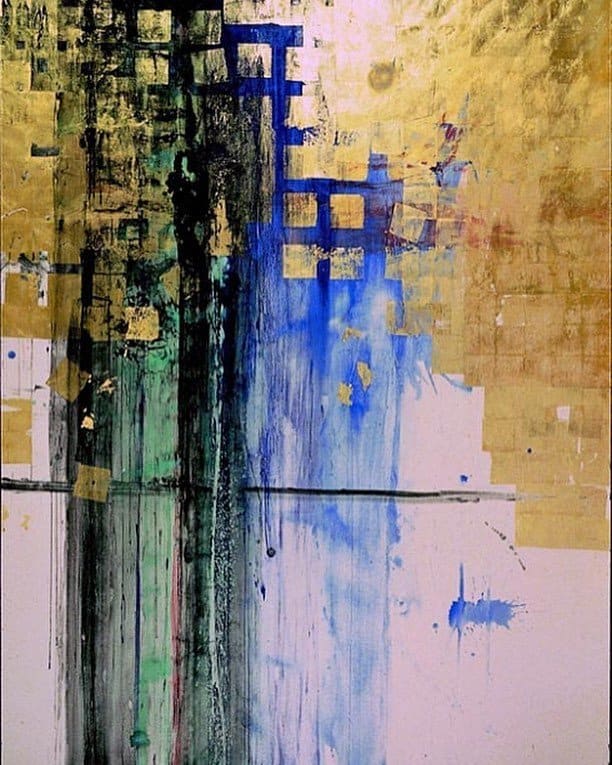
A teenage girl claims an angel told her she’d have a virgin birth. Her fiancé is hesitant to believe her. She gives birth in a stable. The people who come to visit are not family members but shepherds—the most humble people of the time, like today’s garbage collectors. A few weeks later, magicians from the East come with their gifts. They are fortune tellers, not religious leaders, and the stars are their scriptures.
The greatest story ever told is not about power, wealth, or worldly success; it is the story of people in the margins, people under suspicion, people who have been humbled—people like artists.
When strangers find out that I’m an artist, they almost always ask the same questions: “What kind of art do you make?” “Why do you do it?” “Can you make a living?”
If I said I was an electrical engineer, explaining would not be necessary. But tell people, particularly Christians, that I am an artist and I am immediately suspected or dismissed: “You don’t paint nudes, do you?” “I don’t understand modern art.” “You make that weird stuff that my kids could paint and then call it ‘art,’ don’t you?”
No wonder artist types sit in the back of the church and leave as soon as the music ends, if they come to church at all. Church is for successful people, for respectable folks with real jobs. But church people forget that the Bible is full of strange, artsy folks.
No wonder artist types sit in the back of the church and leave as soon as the music ends, if they come to church at all. Church is for successful people, for respectable folks with real jobs.
But church people forget that the Bible is full of strange, artsy folks. Ezekiel believed God asked him to do performance art—eating a scroll and cooking with human dung. King David danced naked in the streets. Hosea claimed that God told him to marry a prostitute and, when she’d run off, to keep buying her back from her pimp by baking food for him. Then you have this pregnant teen who gave birth to a King in a food trough, a King who was greeted by the garbage collectors of the time. Right.
When I read the Bible as an artist, however, this all makes sense. Artists do all sorts of strange things to communicate—they create language to describe the indescribable. Ezekiel, David, and Hosea were marginalized, poor, outcast, creative, curious—more like artists than “respectable people.” God, too, is an artist, inventing strange ways to communicate. Existing outside time and space, he must translate the transcendent into the mundane. He dares to use us, broken and lost, to do the work of re-creation. And like “modern art,” this looks strange, otherworldly, and full of mystery.
Saint Paul, while in prison, asks for prayer to “boldly proclaim the mystery of the gospel.” The “gospel” is the good news of Jesus’ life, death, and resurrection, which on the surface seems pretty clear. So why does he use the word “mystery?” Why not say, “Pray that I can be clear” or “Pray that I can be persuasive?”
Jesus, himself an artist, spoke of mysterious things by using parables. He told of a young son who takes his inheritance and wastes it all on frivolous pleasures. When he loses everything and decides it’s better to go home ashamed than be homeless, his father throws a big party for him, saying, “My son was lost, and is found.” The elder brother is understandably upset: Where’s the discipline? Where are the consequences?
As Jesus tells this story, he turns to the religious authorities of his day, insinuating that they are that elder brother who does not understand the Father’s frivolous love for his inconstant and selfish child. Like them, we too are often legalistic and loveless, an anxious people who cannot stop to appreciate beauty or hear music in the spheres of our world.
A journey with Jesus is more like being an artist than working a predictable nine-to-five job. It’s unpredictable, risky, and often strange. It’s an adventure for which you need faith.
A journey with Jesus is more like being an artist than working a predictable nine-to-five job. It’s unpredictable, risky, and often strange. It’s an adventure for which you need faith. You don’t need to be a “respectable Christian” to walk with Jesus: in fact, it’s best if you are not. You’ll be better able to wrestle with the deeper realities of your journey, to confront your brokenness. You’ll be able to let your life’s experience become the materials for your craft, articulating that deep mystery within you rather than trying to explain it away.
The church needs artists, because, like Jesus, they ask questions that are both enigmatic and clear, encouraging and challenging. And like Jesus’ closest followers, they are neither respectable nor well put together. Jesus gave his disciples “authority” because he chose them as broken creatures in need of a Savior who understood their dependence on God. He gave them “author”-ity to write the story of the kingdom and recount the mystery of redemption. He made them into artists.
We are all chosen, broken creatures and Jesus has made us all into artists, whether we use a brush or simply ride on a garbage truck. Our lives are living stories of the kingdom that we write every day. Infused with the mystery of the Great Artist’s spirit, our stories can become a wide-open adventure, part of the greatest story ever told.
Makoto Fujimura, Director of Fuller’s Brehm Center, is an artist, writer, and speaker who is recognized worldwide as a cultural shaper. A Presidential appointee to the National Council on the Arts from 2003-2009, Fujimura served as an international advocate for the arts, speaking with decision makers and advising governmental policies on the arts. Fujimura’s work is represented by Artrue International and has been exhibited at galleries around the world. This article originally appeared in the November/December 2010 issue of CSA’s PRISM magazine.


